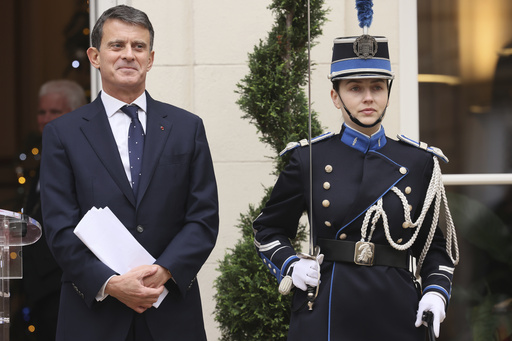PARIS — The President of France, Emmanuel Macron, and Prime Minister Francois Bayrou have successfully established a new government just ahead of the holiday season. However, they now face a series of daunting challenges. The country is grappling with significant debt, mounting pressure from nationalist factions, ongoing conflicts across Europe and the Middle East, all complicating the situation following a tumultuous year in 2024.
At the forefront of these issues is the urgent task of passing the 2025 budget. Financial markets, credit rating agencies, and the European Commission are urging France to reduce its deficit to comply with EU debt regulations. This compliance is essential to prevent France’s borrowing costs from skyrocketing, which would endanger the stability of all eurozone nations. Presently, France’s debt is an alarming 112% of its gross domestic product. This figure escalated further due to government initiatives during the COVID-19 pandemic, which included financial support for workers and businesses, in addition to capping energy prices following Russia’s invasion of Ukraine. The repercussions of these measures are now surfacing.
The previous French government faltered recently as far-right leader Marine Le Pen and left-wing lawmakers opposed proposed spending cuts and tax increases of 60 billion euros in the initial budget plan for 2025. It is anticipated that Bayrou and the newly appointed Finance Minister Eric Lombard will need to revise their financial promises, yet these recalibrations will be complex. Lombard, a former banker with experience advising Socialist administrations, acknowledged the difficult political landscape, the precarious economic environment, and the imperative to address France’s chronic debt issues. He emphasized that high levels of debt not only increase costs but also hinder the country’s overall well-being.
With this being the fourth government in a year, the political climate remains unstable, as no single party holds an outright parliamentary majority. The new cabinet will require support from lawmakers across the center-right and center-left to ensure survival. Le Pen played a crucial role in the government’s ousting and continues to wield significant influence. Meanwhile, left-wing groups are expressing discontent over the anticipated spending cuts, which they believe will disproportionately impact lower-income families and small enterprises. Those on the left feel sidelined after their coalition won the most seats in the snap legislative elections over the summer but failed to form a government. The threat of a no-confidence vote looms, although the backing of multiple parties for such a motion remains uncertain.
Regarding Macron, he has firmly stated his intention to complete his term until the end of 2027. However, the political framework established in 1958, known as the Fifth Republic, was intended to create stability following previous turmoil. Should this new government falter in the coming months, and if political deadlock ensues, the pressure will increase on Macron to resign or initiate early elections. Le Pen’s National Rally is determined to undermine Macron’s presidency, yet she confronts her own challenges, particularly a court ruling in March over alleged party financing misconduct which could hinder her political aspirations.
Beyond the immediate governance issues, the National Rally and the hard-right Interior Minister Bruno Retailleau are advocating for stricter immigration regulations. Nonetheless, Bayrou has indicated a preference for enhancing the existing immigration framework, noting that several laws already exist but are not effectively implemented.
Additionally, defense spending has emerged as a crucial agenda item against the backdrop of growing European security concerns and pressures from incoming U.S. President Donald Trump for increased defense spending among European nations. French Defense Minister Sebastien Lecornu has retained his position, focusing on military support for Ukraine and the necessity of bolstering France’s own military capabilities in response to looming threats.
In response to pressing humanitarian needs, Macron aims to pass an urgent law by early January to facilitate the swift reconstruction of Mayotte, a French territory in the Indian Ocean that has suffered serious damage from a cyclone. The aftermath of this natural disaster has left thousands in emergency shelters and ongoing assessments of casualties are underway.
In another development, the government in the volatile French Pacific territory of New Caledonia has recently collapsed due to multiple resignations from pro-independence officials. This presents yet another challenge for Manuel Valls, the newly appointed minister for overseas affairs, and the emerging Cabinet.



